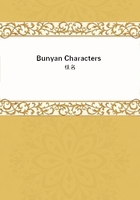
第145章 VALIANT-FOR-TRUTH(2)
Will the Wildheads here to-night take a line or two out of that peace-making author and lay them to heart? "My dear L-, take notice of this, that no truths, however solid and well-grounded, will help you to any divine life, but only so far as they are taught, nourished, and strengthened by an unction from above; and that nothing more dries and extinguishes this heavenly unction than a talkative reasoning temper that is always catching at every opportunity of hearing or telling some religious matters. Stop your ears and shut your eyes to all religious tales . . . I would no more bring a false charge against a deist than I would bear false witness against an apostle. And if I knew how to do the deists more justice in debate I would gladly do it . . . And as the gospel requires me to be as glad to see piety, equity, strict sobriety, and extensive charity in a Jew or a Gentile as in a Christian; as it obliges me to look with pleasure upon their virtues, and to be thankful to God that such persons have so much of true and sound Christianity in them; so it cannot be an unchristian spirit to be as glad to see truths in one party of Christians as in another, and to look with pleasure upon any good doctrines that are held by any sect of Christian people, and to be thankful to God that they have so much of the genuine saving truths of the gospel among them . . . Selfishness and partiality are very inhuman and base qualities even in the things of this world, but in the doctrines of religion they are of a far baser nature. In the present divided state of the Church, truth itself is torn and divided asunder; and, therefore, he is the only true Catholic who has more of truth and less of error than is hedged in by any divided part. To see this will enable us to live in a divided part unhurt by its division, and keep us in a true liberty and fitness to be edified and assisted by all the good that we hear or see in any other part of the Church. And thus, uniting in heart and spirit with all that is holy and good in all Churches, we enter into the true communion of saints, and become real members of the Holy Catholic Church, though we are confined to the outward worship of only one particular part of it. And thus we will like no truth the less because Ignatius Loyola or John Bunyan were very jealous for it, nor have the less aversion to any error because Dr. Trapp or George Fox had brought it forth." If Wildhead would take a winter of William Law, it would sweeten his temper, and civilise his manners, and renew his heart.
3. Inconsiderate, again, is the shallow creature he is, and does the endless mischief that he does, largely for lack of imagination.
He never thinks--neither before he speaks nor after he has spoken.
He never put himself in another man's place all his days. He is incapable of doing that. He has neither the head nor the heart to do that. He never once said, How would I like that said about me?
or, How would I like that done to me? or, How would that look and taste and feel to me if I were in So-and-so's place? It needs genius to change places with other men; it needs a grace beyond all genius; and this poor headless and heartless creature does not know what genius is. It needs imagination, the noblest gift of the mind, and it needs love, the noblest grace of the heart, to consider the case of other people, and to see, as Butler says, that we differ as much from other people as they differ from us. And it is by far the noblest use of the imagination, far nobler than carving a Laocoon, or painting a Last Judgment, or writing a "Paradiso" or a "Paradise Lost," to put ourselves into the places of other men so as to see with their eyes, and feel with their hearts, and sympathise with their principles, and even with their prejudices. Now, the inconsiderate man has so little imagination and so little love that he is sitting here and does not know what I
am saying; and what suspicion he has of what I am saying is just enough to make him dislike both me and what I am saying too. But his dull suspicion and his blind dislike are more than made up for by the love and appreciation of those lovers and defenders of the truth who painfully feel how wild and inconsiderate, how hot-
headed, how thoughtless, and how reckless their past service even of God's truth has been.
"The King is full of grace and fair regard.
Consideration, like an angel, came And whipp'd the offending Adam out of him."
4. And as to Pragmatic, I would not call you a stupid person even though you confided to me that you had never heard this footpad's name till to-night. John Bunyan has been borrowing Latin again, and not to the improvement of his style, or to the advantage of his readers. It would be insufferably pragmatic in me to begin to set John Bunyan right in his English; but I had rather offend the shades of a hundred John Bunyans than leave my most unlettered hearer without his full and proper Sabbath-night lesson. The third armed thief, then, that fell upon Valiant was, under other names, Impertinence, Meddlesomeness, Officiousness, Over-Interference.